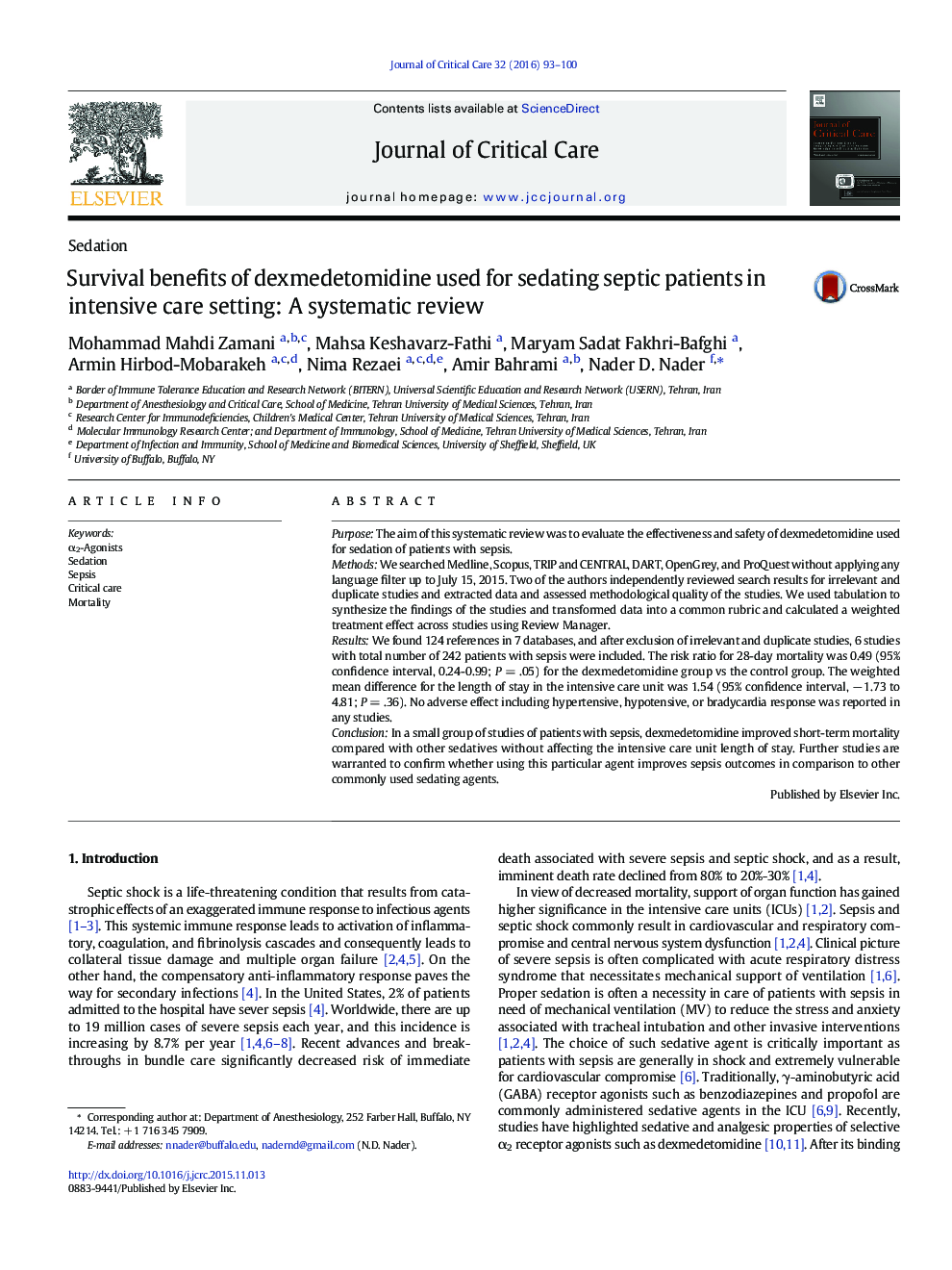| Article ID | Journal | Published Year | Pages | File Type |
|---|---|---|---|---|
| 2764482 | Journal of Critical Care | 2016 | 8 Pages |
PurposeThe aim of this systematic review was to evaluate the effectiveness and safety of dexmedetomidine used for sedation of patients with sepsis.MethodsWe searched Medline, Scopus, TRIP and CENTRAL, DART, OpenGrey, and ProQuest without applying any language filter up to July 15, 2015. Two of the authors independently reviewed search results for irrelevant and duplicate studies and extracted data and assessed methodological quality of the studies. We used tabulation to synthesize the findings of the studies and transformed data into a common rubric and calculated a weighted treatment effect across studies using Review Manager.ResultsWe found 124 references in 7 databases, and after exclusion of irrelevant and duplicate studies, 6 studies with total number of 242 patients with sepsis were included. The risk ratio for 28-day mortality was 0.49 (95% confidence interval, 0.24-0.99; P = .05) for the dexmedetomidine group vs the control group. The weighted mean difference for the length of stay in the intensive care unit was 1.54 (95% confidence interval, − 1.73 to 4.81; P = .36). No adverse effect including hypertensive, hypotensive, or bradycardia response was reported in any studies.ConclusionIn a small group of studies of patients with sepsis, dexmedetomidine improved short-term mortality compared with other sedatives without affecting the intensive care unit length of stay. Further studies are warranted to confirm whether using this particular agent improves sepsis outcomes in comparison to other commonly used sedating agents.
